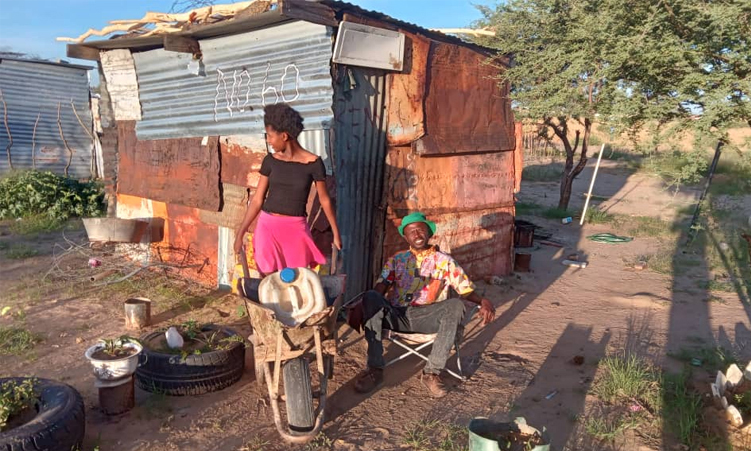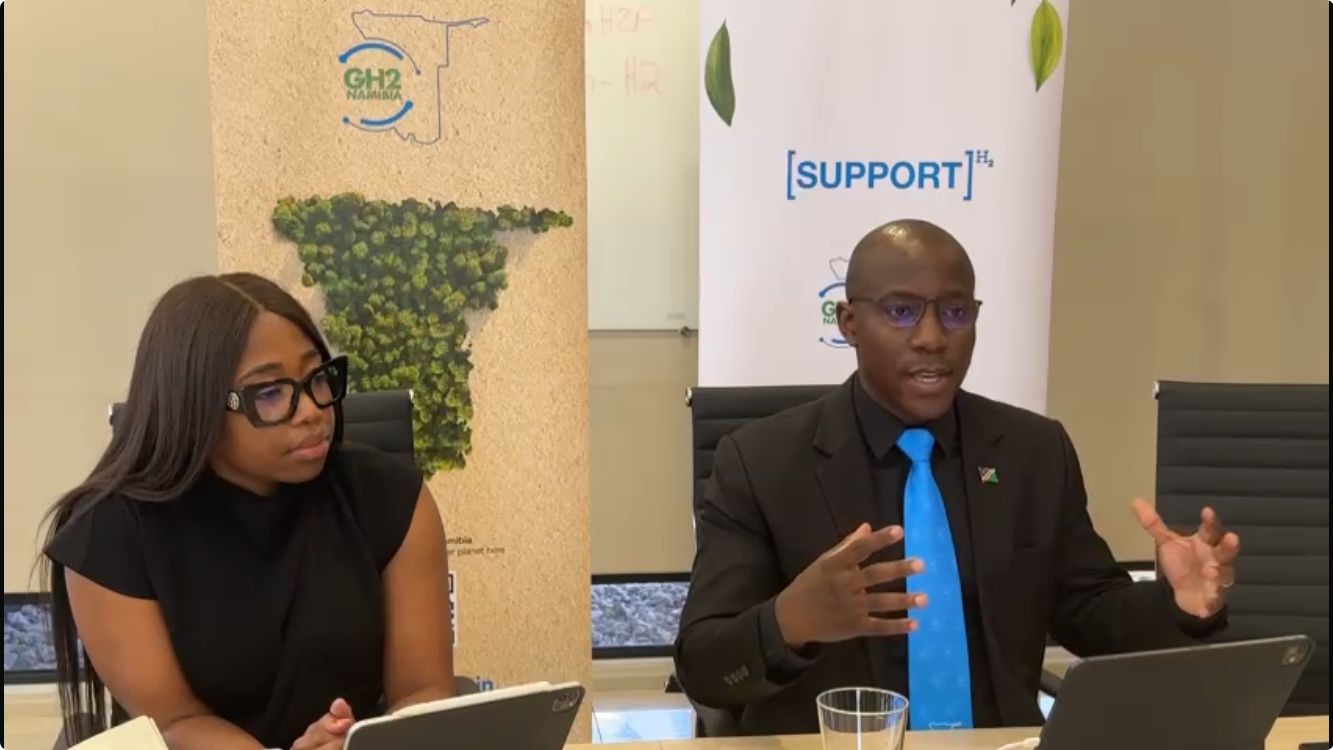After being told she has a high degree of myopia at the age of nine, Hileni Endjala (51) says she now also suffers from glaucoma.
“The older I get, the worse it gets,” the Otjomuise resident and mother of one says.
Patients with early-stage high myopia normally wear corrective glasses or contact lenses.
Laser eye surgery is also a possibility for some patients, depending on the type of complication.
Endjala says her vision started fading during childhood, although she does remember a time when she could see clearly while playing with other children.
“I was referred to Windhoek for an eye consultation, and there was one year when I couldn’t see at all and had to undergo cataract surgery.
“I continued with school, but my left eye’s vision faded completely, and I could only use the right eye,” she says.
Endjala says she joined the Namibian Federation of the Visually Impaired as a student in 1999, and was later employed to train partially sighted people on day-to-day activities.
ADAPTING
“At home I do all my work properly. I smell to know when something is cooked or when it’s about to burn, and I make use of my hands to feel whether the stove is on.
Endjala says she uses hand signals to lead the catering team at work.
“There are places where I can’t go alone, and which are hard to access, like new buildings,” she says.
Endjala commends her family, friends, husband and daughter who have been supporting her.
CHALLENGES
She says entering a taxi is a challenge, since one cannot see who is seated and how many passengers are inside.
“Sometimes you find yourself almost sitting on somebody. At times, when you stop a taxi, some taxi drivers nod or shake their heads, which are body signs I cannot see.
“Some drivers rob us of our change,” she says.
Endjala says some stores are easier to navigate than others, and changing store shelves are a challenge.
Some stores’ shelf labels are printed in braille, which helps, she says.
“It can be heartbreaking when people assume I can see, because my eyes look like I can see. Some people think I’m pretending,” she says.
When seeking medical care, she says there is no confidentiality, because healthcare workers tend to read personal details out loud in front of other patients, she says.
She also has to memorise how often to take medication, since medicine labels are not printed in braille.
“New ATMs are a challenge – the touchscreens are difficult to use,” she says.
ACHIEVEMENTS
Endjala says she has obtained a certificate in entrepreneurship at the Namibia University of Science and Technology five years ago, and is about to complete a diploma in counselling at the Tulipohamba Training and Assessment Institute.
Her first qualification was a diploma in hospitality, which she acquired from the Institute of Baumgartsbrunn Hotel Industry in 1996.
Endjala’s daughter, Jo-Anita Nakaleke, says her mother sets a good example for her.
“My mother does not let her condition limit her, and she does most of the things everyone else can do. My mother has always provided for me – regardless.
“She does not see her condition as a disability. She is very hard working despite being partialy sighted, and excells at many things,” she says.
WHAT IS GLAUCOMA?
According to Mayo Clinic, glaucoma is defined as a group of eye conditions involving a damaged optic nerve, which sends visual information from your eye to your brain.
Damage to the optic nerve is often related to high pressure inside the eye.
But glaucoma can happen even with normal eye pressure.
Namibian Federation of the Visually Impaired director Moses Nghipandulwa is calling on the state and the private sector to implement access to information in braille, large print, or audio format.
“The federation is a nonprofit, making depend on donors’ support, however, it has become so difficult these years to find support for the federation’s operations and activities,” he says.
Two months ago, The Namibia Scientific Society launched the Constitution of Namibia in braille in Windhoek.
Stay informed with The Namibian – your source for credible journalism. Get in-depth reporting and opinions for
only N$85 a month. Invest in journalism, invest in democracy –
Subscribe Now!






